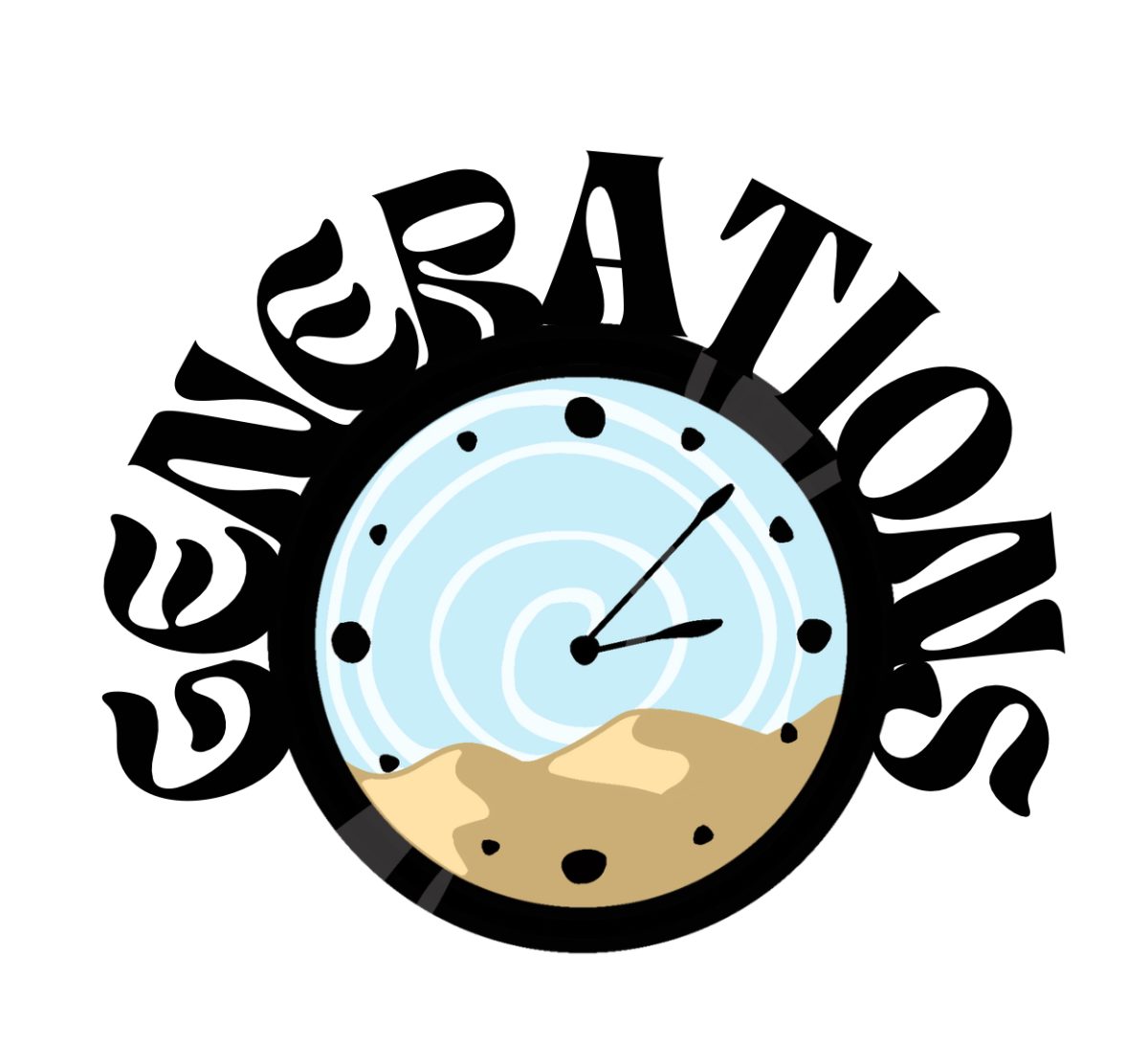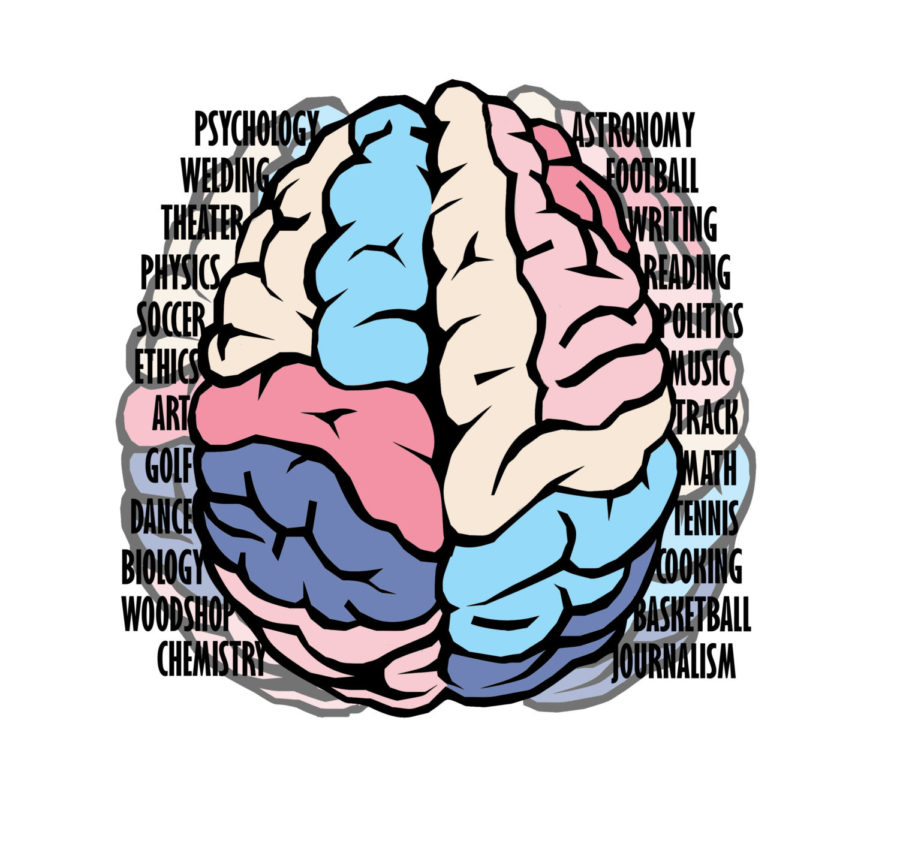The Negative Truths of Standardized Testing
Areas of the brain resemble different subjects student want to learn
April 26, 2018
Every Spring, for as long as I can remember, I have always taken some sort of standardized test to determine my level of knowledge. In elementary school, CRT tests took up the last month of my time every year. In eighth grade, the first year of SAGE testing replaced the good ole’ CRT days. As high school is coming to a bittersweet end for me, I cannot help but look back at all of the ‘end of year’ tests I have taken and ask myself if they were helping me reach my full potential. Were these numerous tests truly showing an accurate view of my academic abilities?
Standardized tests are used to measure a students’ learning ability on a certain subject. Math, reading, science, history, and all the other subjects a student’s brain is pushed to know. But not every student is going to pursue a career after high school in math, reading, science or history. So why are we all being pushed to know them?
SAGE testing is primarily used to give the teachers a better understanding of how they can educate better, based only on their students’ scores. I can say that I personally, don’t really try on this test because it isn’t going to reflect badly on me, maybe that is selfish, but I know I’m not the only one who chooses random bubbles on the multiple choice just to get it done.
Instead of multiple choice tests, why not implement careful observation and documentation of student work and behaviors by trained teachers? This could potentially prove more helpful than a one-time test. Assessment based on student performance on real learning tasks is more useful and accurate for measuring achievement — and provides more information for teaching (like SAGE tests are trying to do) — than multiple-choice achievement tests.
More importantly, standardized testing limits student learning because they focus only on cognitive dimensions, ignoring many other qualities that are essential to student success. Many students want to branch out of the core classes outside of high school and further into college or a career — theatre, arts, automotive skills, and many other fields that don’t primarily focus on core curriculum subjects.
Many limitations can occur on student learning but I feel the most important are the results from the negative perceptions standardized tests can give to students about themselves and their own abilities. If one student scores higher on a multiple choice test because they understand math better than another student, this person is going to feel less than important or that they are falling behind in school, primarily because of their lower score.
In many districts, standardized exam results have become the single most important indicator of school performance. As a result, teachers and administrators feel enormous pressure to ensure that test scores consistently rise. Schools narrow and manipulate the curriculum to match the test, while teachers tend to cover only what is likely to be on the next exam. I have seen methods of teaching conform to the multiple-choice format, and education increasingly resembles test prep. It is easy to see why this could happen in low-scoring districts. But some high-scoring schools and districts, striving to keep their top rank, also succumb.
No test is good enough to serve as the sole or primary basis for any important educational decisions.






























